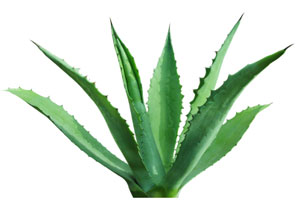 Have you turned your love of sugar in to a love of agave in an effort to be healthier? Maybe you should rethink much “love” you give it. If you are unfamiliar, agave nectar (ah gav ee) is a sweetener that ranges in color from light to dark, depending on the processing time and amount of minerals in the product. It is less thick than honey or maple syrup and has a sweeter taste. The agave sweetener comes from various species of the agave plant. After the juice has been extracted, it is heated to create simple sugars. The final product is some percentage of the sugars glucose and fructose.
Have you turned your love of sugar in to a love of agave in an effort to be healthier? Maybe you should rethink much “love” you give it. If you are unfamiliar, agave nectar (ah gav ee) is a sweetener that ranges in color from light to dark, depending on the processing time and amount of minerals in the product. It is less thick than honey or maple syrup and has a sweeter taste. The agave sweetener comes from various species of the agave plant. After the juice has been extracted, it is heated to create simple sugars. The final product is some percentage of the sugars glucose and fructose.
So far agave should remind you of typical sugar sweeteners – including high fructose corn syrup (HFCS). However, the reality is that in recent years agave has been given a “health halo.” Since agave is vegan and can be processed at lower heat temperatures to satisfy raw food enthusiasts, it is an obvious desirable sweetener for some. But people have been flocking to use agave more and more because of its “low glycemic index” (low immediate effect on blood sugar). Since agave is mostly fructose the glycemic index is lowest of all the sugars. This has led some people to believe that agave is a healthier option. However, low glycemic index does not mean healthy. In fact, fructose is metabolized directly by the liver, which is different from other sugars, and can lead to fatty liver deposits. High fructose intake has also been linked to weight gain, insulin resistance, and heart disease risk in animal studies. 
At best, agave is no healthier for you than other sweeteners. The fructose in agave (even if they call it natural) is not the same fructose in a piece of natural fruit. It is processed. Like all processed food products with added sugars, you should have them rarely and in limited quantities. There is no reason to select agave before other sweeteners when it comes to nutrition.
However, there may be culinary benefits. For example, the light agave is neutral in flavor and might be a good choice to sweeten sauces or beverages. The darker agave has a more caramel flavor and might be preferred for more robust dishes.
Agave is not the “angel” it’s been made out to be and certainly is not deserving of the “health halo” it has been given. That said, it’s not a “devil” ingredient either if you are health conscious. Like all sugars, it’s up to you to decide how much you will have and how often. Avoiding foods with added sugars altogether is not entirely realistic, but don’t think of agave as a free pass to eat a pan of cookies or brownies made with the nectar, either.
